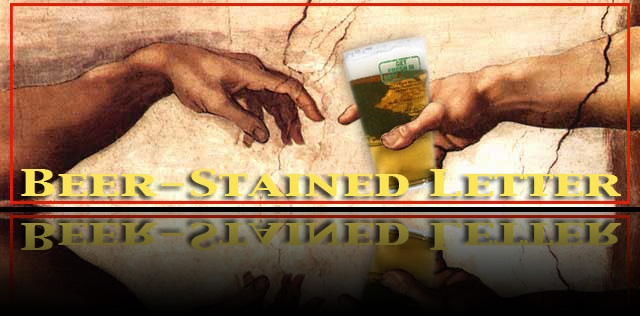Dodging a bullet – for now
A $7 billion hole in the state budget, and some of the suggested ways to fill it for now include higher taxes on liquor and wine.
That’s what The Star-Ledger is saying today in a sourced story that headlines the solutions with another tax hike on people pulling down $250,000 a year or higher. (That was done by McGreevey about 5 or 6 years ago).
But what we care about is beer, and it looks like beer dodged a bullet for now. But bear in mind that these fixes are for the fiscal 2010 budget, which has to be in place on July 1st with spending and revenues evened out.
So, yeah, beer is safe. For now. But the Legislature won't push this through until June, so higher taxes on beer could still get tucked into that. Just have to wait and see.
And speaking of beer and tax revenue, we tried to find out just how much our microbrewers and brewpubs generate for state coffers via fees and taxes. If you recall, we filed inquiries under the state Open Public Records Act. It was a logical approach, and we asked about New Jersey wineries, too, to create a comparison.
However, we only got half an answer from the New Jersey Treasury, and that was for wineries, expressed as gallons produced for each year from 1996 to 2007, and a multiplier of 70 cents per gallon (yes, Treasury was making us do the math). So for example, in 2007 (a big year for Jersey winemakers) 204,290 gallons were made, multiplied by 70 cents per gallon (damn, that’s a steep tax, but as a finance mind we talked to over the weekend says, “Wine sells for more per bottle”). The math comes to $143,000 for '07, and that’s just a state alcoholic beverage tax tied to production. There’s still the sales taxes the wineries collect, which, alas, is a figure we don’t have.
Ditto for beer. Here’s why ...
- The Division of Taxation has informed this office that they do not differentiate New Jersey microbreweries and brewery/distributors from out-of-state breweries. Therefore, we have no records responsive to your request.
Treasury didn’t say they couldn’t tease out the state’s craft brewers and brewpubs to provide a figure. They can and would for a processing fee – and here’s where things stall – of about $3,000, paid by the filer of the OPRA request (to wit, us). And that sum is just a guess on Treasury’s part. And here’s why: No one has ever asked for the information, so all of the computer scripts to capture the data would have to be written and run by the folks working at Treasury, in addition to doing their normal data processing jobs.
So (in Soup Nazi voice), no beer figures for us! However, Treasury did say about 20 million gallons of beer were produced or transacted wholesale in New Jersey in 2007, generating over $2.3 million in alcoholic beverage tax revenue alone. (Most of that figure, undoubtedly, comes via Budweiser in Newark). Again, this doesn’t include sales taxes on beer sold by packaged goods stores, or the mere two sixpacks or growlers breweries can sell per person per visit.
But all is not completely lost. According to figures that Jersey breweries reported to the Brewers Association, the Colorado-based national trade organization for craft brewing, Garden State microbrewers produced 26,376 barrels for 2007. That comes to just over $98,000 in alcoholic beverage tax revenue for the state.
A few caveats, though. Not all craft or pub brewers in the state belong to the Brewers Association (just like not all cranberry producers think the Ocean Spray cooperative is a swinging deal; the brewers have their reasons). Also, the figures from the Brewers Association exclude Pizzeria Uno (as do not publish), because they’re a restaurant corporation that gets kind of batty even if you just want to take a picture of inside their lone US brewpub (in Edison). Additionally, the figures include estimates from the smallest of the small brewers, i.e. companies that produce their beer under contract with other brewers, such as Boak Beverage in Pompton Lakes (20 barrels, by the way, was their estimate).
So, getting the figure from the New Jersey Treasury folks would have been far better, as far as firm, audited numbers go.
Nonetheless, beer means revenue for cash-strapped New Jersey. Of course it’s not going to wash away the red ink and make it so state employees aren’t going to get robbed of 12 days’ pay (furloughs). But Trenton should look at the long-range picture and support the industry, help grow it.
And that, as we’ve been arguing this year, means updating the stifling regulations for brewers, and, like the bullet dodged right now, hopefully skip raising the existing beer taxes.













